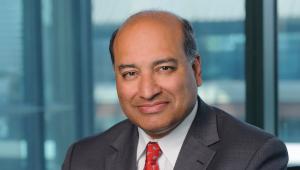By Richard Johnstone | 1 November 2013
The post-2015 development goals must focus on ensuring that governments can raise the revenues needed to meet objectives, Tanzania’s president Jakaya Kikwete has said.
Speaking at the Open Government Partnership annual summit in London yesterday, Kikwete said notable steps towards meeting the current set of Millennium Development goals, which tackle poverty and deprivation, had been taken in many countries.
However, he added that ‘progress has not been even, it varies between one nation and another’. For example, Tanzania was now ‘seriously behind’ on MDG 1, which calls for countries to halve poverty and hunger by 2015. ‘We don’t think we’ll be able to reach the target,’ he said.
Kikwete said that the post-2015 goals, which are currently being discussed between countries following the work of a UN high-level panel to consider options, must both address the ‘unfinished business’ and agree ‘robust’ new aims.
Among these should be a commitment to eradicate poverty in all nations, he said.
‘We should aim at taking all nations out of poverty. In the first MDGs we have been aiming at halving poverty, so lets give ourselves a target that in the next agenda we should end the remaining half.’
It was critical more was done to ensure governments were able to finance progress towards such a goal through domestic tax collection, he added.
One of the current MDGs is a target for countries to mobilise domestic resources to be able to take action.
Tanzania had made ‘tremendous progress’ on government revenue collection since 2000, but it has not been enough to meet the MDG targets, Kikwete said. This illustrated why support to assist nations in raising revenue was vital for the next round.
‘One of the issues we have to look seriously at in the post 2015 agenda is how to raise the requisite finance to be able to implement the goals that we’re going to set for ourselves.
‘If we’re able to do that, we won’t end up with the slippages that we experienced in these MDGs.’
The aims must also have a more explicit focus on promoting growth, he added. ‘If we don’t do that, then the countries will remain on basket cases, and always depending on assistance.
‘But if we can really promote growth from modernising agriculture but also transform from being predominately agricultural actions to industrialised nations and then take it to the next level, where services become dominant, let that be part of the development agenda. The OGP has a role to play in that.’













